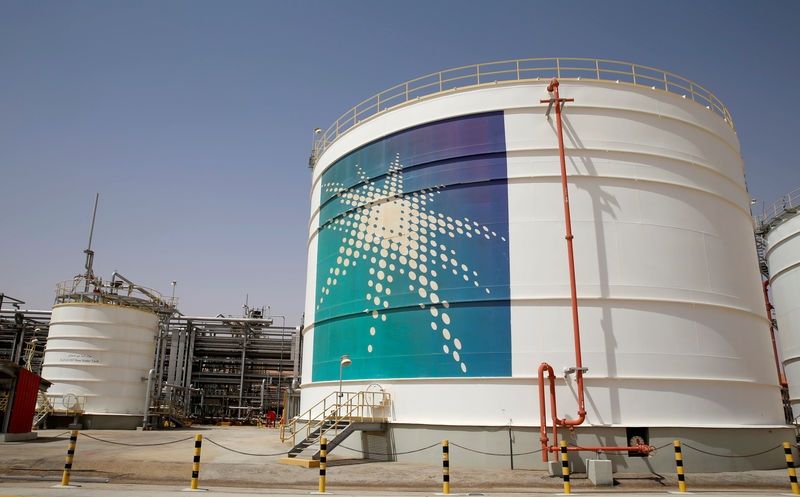(Bloomberg) -- Saudi Arabia put a valuation on oil giant Aramco of between $1.6 trillion and $1.71 trillion, well below the $2 trillion target sought by Crown Prince Mohammed bin Salman since he first touted the deal in 2016.
The kingdom will list only 1.5% of the company on the Tadawul and the offering will mainly target local investors. If shares price at 32 Saudi riyals ($8.53) -- the high end of the range -- it will just beat Alibaba (NYSE:BABA) Group Holding Ltd. to the title of the world’s biggest IPO.
At the lower end of 30 riyals, Aramco will still be more than three times bigger than the entire Saudi stock market. A poll of 24 money managers by Bloomberg News shows more than 40% put the company’s fair range at $1.2 trillion to $1.5 trillion.
The new valuation implies Aramco, which has promised a dividend of at least $75 billion next year, will reward investors with a yield of between 4.4% and 4.7%. That compares with just under 5% for Exxon Mobil (NYSE:XOM) and 6.4% for Shell (LON:RDSa).
Read more details disclosed on Nov. 17.
At this rate, it would dwarf last year’s payouts from the 80 listed firms on the Saudi bourse that paid dividends, according to data compiled by Bloomberg. Investors who buy into the IPO have been guaranteed that the dividend won’t fall until after 2024.
No matter what the final valuation, the share sale will create a public company of unmatched profitability. Aramco earned a net income of $111 billion in 2018 on revenue of $315 billion. It pumps about 10% of the world’s oil from giant fields under the kingdom’s deserts.
The company is so big, investors and analysts were concerned it could drain liquidity from the Saudi market. In recent months, many analysts have said that local investors -- key for a successful deal -- were offloading some of their portfolio to buy Aramco shares.
Read more about what Gulf investors are saying about the IPO.
The Tadawul All Share Index has under performed emerging markets as the Saudi government accelerated preparations for the IPO. The index, which finished little changed on Sunday, has retreated 1.1% since Aug. 29, compared with an 8.1% increase for the MSCI Emerging Markets Index.
(Adds index performance to last paragraph.)
